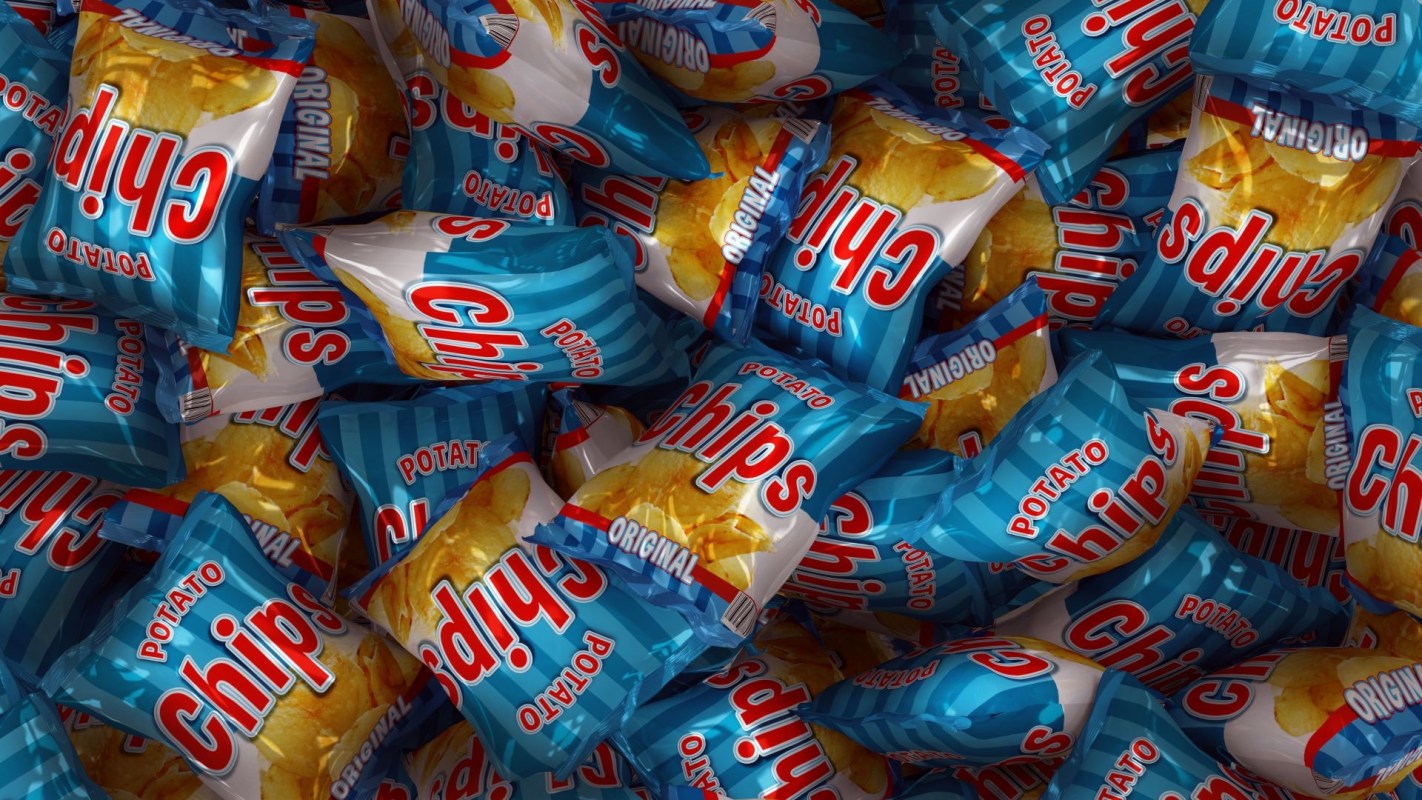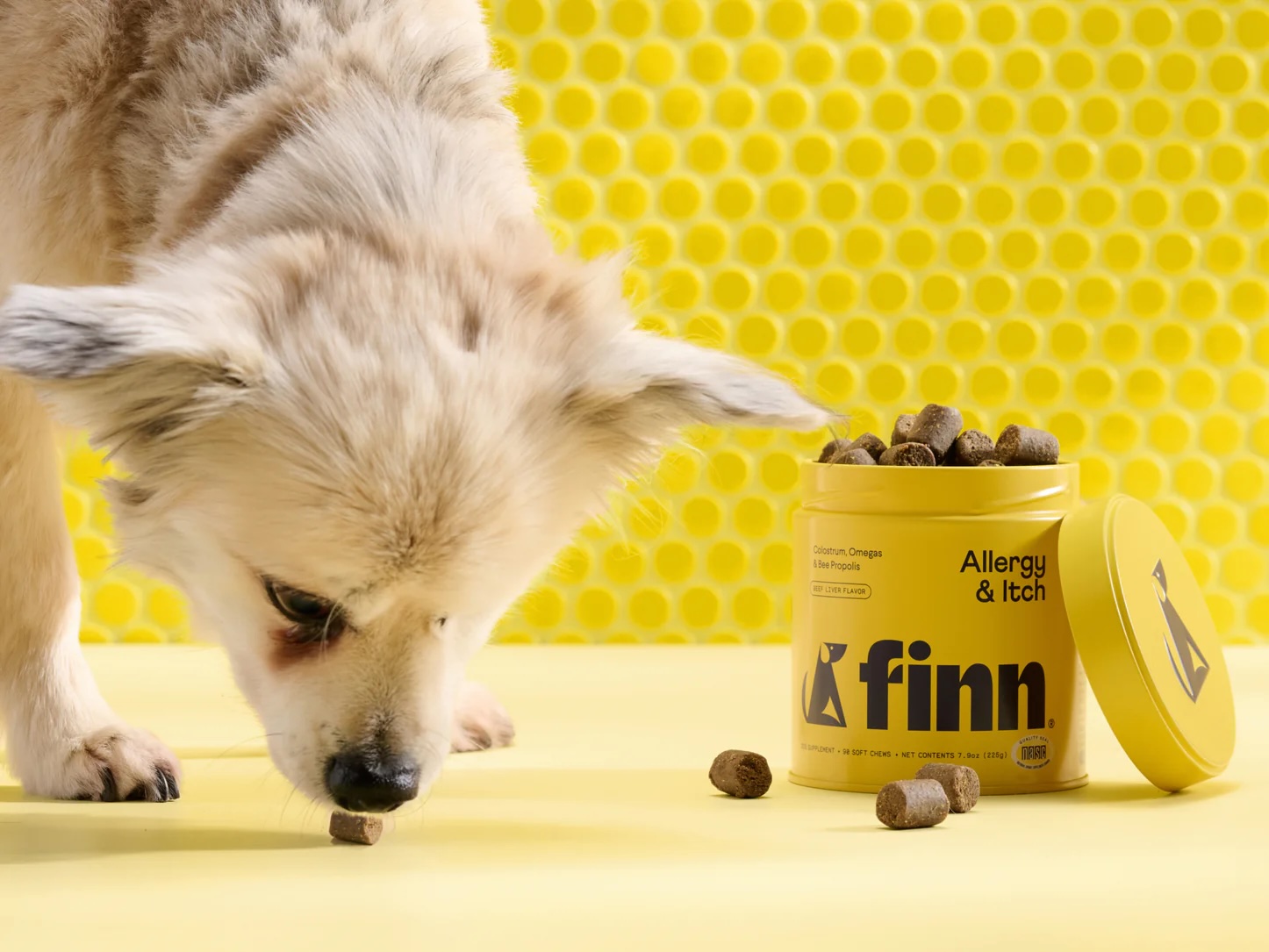Chips, crackers, and cookies are all snack royalty, but their plastic containers cause a royally huge trash problem. Luckily, there are snack brands creating packaging that's designed to change that.
It takes about 20 years for plastic bags to break down naturally. Bloomberg reports that around 200 million tons of single-use plastic waste, like snack bags, is generated yearly worldwide.
The plastic that doesn't end up in landfills often enters the world's waterways, where it breaks down into microplastics that get into aquatic life and, eventually, into us — gross, right?
Seeing all that plastic in the ocean while on diving excursions is what prompted Okeanos founders Florencio Cuétara and Dr. Russell Petrie to develop Made from Stone. Over four years, Cuétara and Petrie worked to create packaging out of calcium carbonate and resin.
Calcium carbonate is an abundant natural resource that makes up 4% of the Earth's crust. And while the resin does have a small amount of plastic in it, it's significantly better than current packaging options.
Meanwhile, during almost the same timeframe, British potato chip brand Two Farmers developed a completely compostable bag for its "crisps," which is British for "chips" (look at us being bilingual).
Get convenient, affordable therapy right from your phone — plus, a week of free counseling This Mental Health Awareness Month, break the barrier with BetterHelp, the world's largest therapy service, with accessible, affordable counseling from licensed, board-accredited therapists you can trust. And it’s 100% online. Get the help you deserve anytime, anywhere, through any device — computer, tablet, or smartphone. In fact, 69% of BetterHelp members reported improved anxiety symptoms after six weeks of therapy. Plus, for a limited time, get your first week of counseling for free. Learn more → |
Mark Green and Sean Mason, the company's founders, focused on sustainability throughout the process of producing their chips, but figuring out the packaging took a while.
Green and Mason found their solution in eucalyptus cellulose film. They worked with a laminator that helped them add plant-based glues and ink for printing — and, boom, compostable bags!
The accomplishments of these innovators are very exciting for the future of our planet, but for significant progress to be made, the major players in the snack game need to step up to the plate.
Frito-Lay is the king of the salty snack industry in the U.S., with a 60% market share. In 2021, the company rolled out an industrially compostable bag for its Off the Eaten Path brand. Frito-Lay aims to make packaging 100% recyclable, compostable, biodegradable, or reusable across all its brands by 2025.
TCD Picks » Grove Collaborative

Join our free newsletter for easy tips to save more, waste less, and help yourself while helping the planet.
















